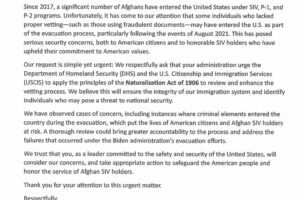By Kauser News Agency | October 22, 2025
A self-proclaimed Taliban supporter identified as Mohammad Ayub Rahamni has reportedly used TikTok to issue alarming threats against Afghan refugees and activists living in Western countries, particularly in the United States and Europe.

In his recent TikTok broadcasts, Rahamni allegedly warned that once the Taliban officially take control of Afghan embassies abroad, the regime will begin confiscating passports from Afghans living overseas and arresting anyone who speaks or acts against the Taliban.
He further claimed that the Taliban already have “sleeper cells” in America and Europe ready to target refugees and activists who criticize or oppose the group online.
The comments have triggered widespread concern among Afghan refugee communities, civil society members, and former Afghan officials who fled the country after the Taliban takeover in August 2021.
Human rights advocates warn that such rhetoric — whether or not it reflects official Taliban policy — can fuel fear, intimidation, and psychological pressure among exiled Afghans. Many continue to engage in activism, journalism, or human rights advocacy critical of the Taliban regime.
“These kinds of statements are meant to silence voices of freedom,” said an Afghan human rights activist based in Germany. “Even if they are not backed by official Taliban orders, they serve the same purpose — to spread fear among refugees.
Since 2021, international watchdogs have documented cases of transnational intimidation by Taliban-affiliated individuals and online influencers. These actors often use social media platforms such as TikTok, Facebook, and YouTube to spread extremist propaganda or threaten dissidents abroad.
Cybersecurity experts note that digital threats can have real-world consequences, as online intimidation can lead to offline violence, harassment, or stalking of refugee activists.
Platforms like TikTok have previously been criticized for allowing extremist-linked accounts to operate openly, often spreading violent or hateful narratives before content moderation systems intervene.
Rahamni’s claims about Taliban embassies seizing passports or arresting refugees are legally impossible under international law, experts say.
Embassies and consulates in Western nations operate under host-country oversight and cannot detain individuals or revoke citizenship. Any such action would violate U.S. and European laws protecting asylum seekers and refugees.
Nonetheless, false claims of this kind can create confusion and panic among refugees who already face bureaucratic and legal challenges in their new countries.
Afghan advocacy organizations in the United States and Europe have called on law enforcement agencies and social media platforms to investigate the account of Mohammad Ayub Rahamni and any individuals associated with threats or extremist content.
“Threats from Taliban sympathizers are not just political speech — they are intimidation tactics that can lead to violence,” said a spokesperson for an Afghan refugee rights group in London. “We urge TikTok to remove such accounts and cooperate with authorities to prevent online radicalization and harassment.”
Safety Recommendations for Afghan Refugees
Experts and human rights defenders recommend that Afghan refugees and diaspora members:
- Report threatening content immediately to TikTok or relevant social media platforms.
- Preserve evidence, including screenshots, usernames, and timestamps.
- Notify local law enforcement and refugee support organizations if they feel unsafe.
- Avoid direct online engagement with extremist accounts promoting violence or intimidation.
While the Taliban’s official representatives have not publicly confirmed any such plans related to foreign embassies or “sleeper cells,” the statements allegedly made by Mohammad Ayub Rahamni reflect a broader pattern of online intimidation targeting Afghan exiles.
The international community, refugee agencies, and social media platforms are urged to take proactive steps to protect freedom of speech and ensure the safety of Afghans who continue to advocate for democracy, human rights, and justice — even far from home.
Kauser News Agency – Independent Journalism for Global Afghan Voices
📧 info@kausernews.org | 🌐 www.kausernews.org





